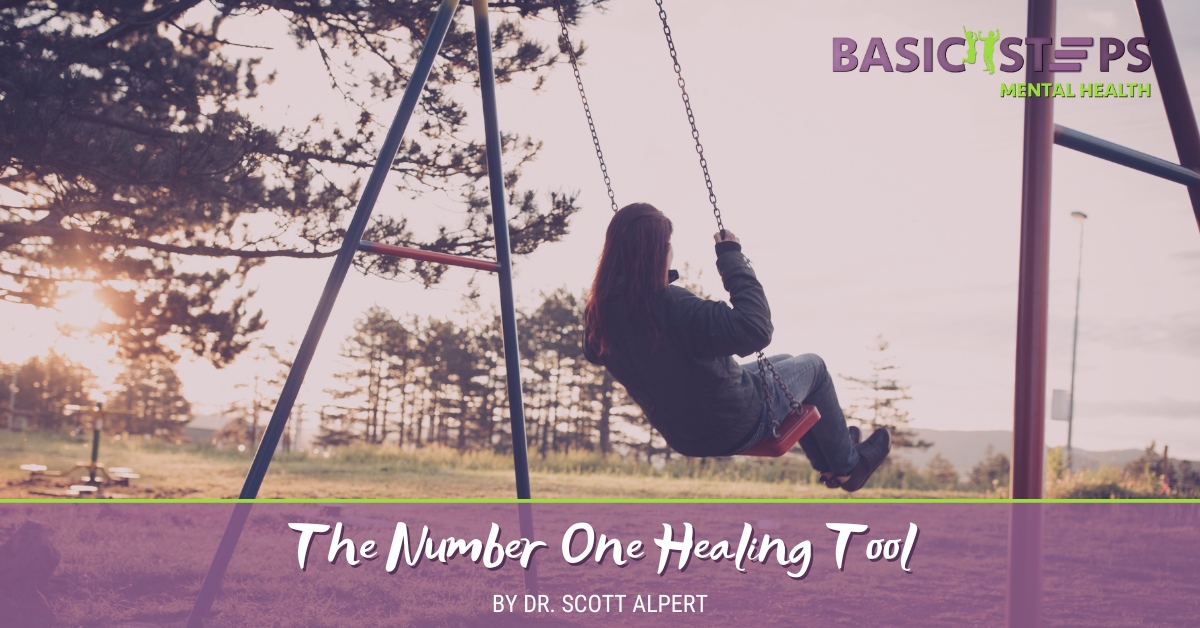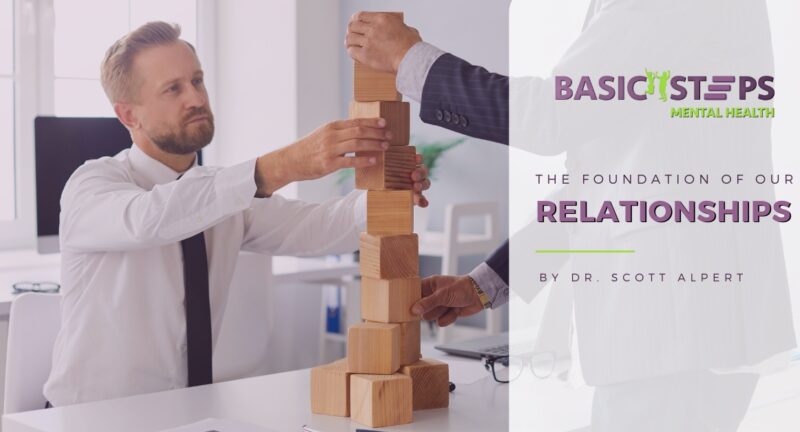
The Number One Healing Tool
As an advocate of Spiritual Psychology, sometimes I feel like a lone wolf in the wilderness. In a world where CBT and DBT get much of the attention, I’ve seen each approach not get the results that are desired, giving psychotherapy a bad rap. If you are in acute distress, behaving a certain way, thinking a certain way, or using anger as a defense will lead to poor results. Then maybe it is time to stop using these old approaches and try something new with proven results that aren’t fattening, immoral, or addictive – though I can attest to the addictive qualities of Spiritual Psychology.
And yes, psychiatric medication can treat the symptoms and help you feel better, though that isn’t always a 100% cure. Many people I treat are frustrated with the results of their medication, and many others will not take the prescribed medication due to burnout. There can be times when you know something is good for you, but swallowing another pill makes you feel dependent on it.
What if there were something you could do—a certain approach that could be used—that automatically gave you the results you needed? That’s what this article is all about.
I fell into using this approach by accident in 1989 while attending a “Personal Growth Seminar” called The Awakening Heart Seminar. To be honest, I was there to try and find a girlfriend. If somebody loved me, it would prove that I wasn’t a total loser. But, deep down, that was how I felt. At this time, I suffered from panic attacks and depression, and thought that life was all about suffering and pain.
After my heart was awakened in the five-day training, I was kinder to myself and to others, found a girlfriend, and my business and family relationships improved. But then the teachings of the seminar began to fade. I forgot the tools they taught. I began to fall back into my old patterns—I was dismayed! I thought what I learned in the seminar would just click into place, and I would live happily ever after. Nope, far from it. So that’s when I attended seminars two and three, and again got quick results, but not the high that I experienced in the first training.
I searched for the Scott who was loving and carefree. He was awesome to hang around with, but as the pressures of everyday life took hold that Scott was nowhere to be found.
I thought love heals, and when I experienced my inner love click in, I did great, but sometimes I wasn’t in a loving mood. There were reasons why I was upset, and until these issues were properly dealt with, my upset began to dominate my existence. Oh, I tried to be happy, did all the things that used to make me happy, but they had lost their appeal. Turning off a video game in mid-process? Yep. That described me during this turbulent time. Nothing seemed to satisfy, but I wasn’t going back to using drugs. I had been there, done that, got the t-shirt, and burned it.
What kept me bumping into a wall was my belief system—especially what Freud called my defense mechanisms. I often was in denial, I projected my negativity onto others, I ran away and hid if problems were too overwhelming, and I became righteous. This was when I began to study Spiritual Psychology, which forever changed me! Oh, they preached being heart-centered, but it took what they presented in the seminar into outer space! At the university, I learned how to change my mindset, heal the root of my childhood trauma, process through the shameful acts of my past, and truly live from my heart center.
For me, the number one tool I learned in life came from the studies of Spiritual Psychology. The focus was on reparenting my wounded younger self. When inner child work was discussed, I was intrigued. It spoke to me. My innermost self suddenly had a way to express itself, and the initial conversations through opposite-hand writing and with Empty Chair Work were incredible! Then something interesting happened when my inner child complained about never playing catch with our dad. “I’ll play catch with you,” I replied to him. Next, I grabbed a tennis ball and threw it with my opposite hand against the garage door, caught it with my dominant hand, stated with loving care that it was an amazing throw, and continued to play catch—adult with inner child. It warmed my heart.
I didn’t read about adult play therapy like this in any textbook. Organically, it just took place. It evolved into bowling with the opposite hand, climbing trees, and soon I found myself swinging at the park and imagining that young Scottie Waddie Do Dah was in my lap! That’s when my inner work stuck. I felt fed. Somebody actually cared about me, and it felt really good. And, oh yes, the person who was healing me was me. But it didn’t feel wrong. Loving myself seemed so taboo and wrong. Like most people, I felt that loving yourself was selfish or narcissistic. Though I wasn’t only loving me. I had more love to give others, and instead of starting conversations by complaining, I was more upbeat. “Ernie, what is happening? Are those new shoes?”
I guess to put a name on my number one tool, it is “Reparenting.” Let’s face it, we cannot think our way out of an emotional wound. These types of wounds need to be processed out—and with love. Especially love. When I began literally reparenting myself, it meant that I needed to constantly interact with my younger self. It was on paper, in the empty chair, in my head, whenever I was exercising. Shoot, when skiing, my dominant leg was my adult and the opposite leg was my inner child. This became so wonderful, especially when the terrain was a huge challenge. Whatever the issue, there were two parts of me that grappled with it: my emotional self (younger me) and the loving mentor (adult me).
I train interns on using love to heal themselves. If you want to be a therapist, you need to understand that you cannot fix another person, because they need to learn to do this themselves. Therefore, it is important for therapists to model healing, and their first action step is reparenting themselves. How can we heal people if we aren’t healed?
Psychology is the science of relationships, and how therapists interact with the client can show them love in action. When couples go through treatment, one of the biggest problems is their not sharing love. Couples often focus on what is wrong with their partner instead of what is right. Browbeaten, both partners who disdain and have anger toward the other need to focus on healing themselves and sharing their new self with their partner. In doing so, children who have been learning to go on the attack in their relationships instead learn to share love.
For those of you who are intrigued by this article, try this on for size: Be kind to yourself. Read the articles on reparenting in our library. The worst thing that can happen is you feel better within yourself. The best thing that can happen is you share this new you with others.
Compassionate Care is Always Available
There are many more tools and strategies you can use in your pursuit of happiness. Here is where we come in. Contact us at Basic Steps Mental Health and let us support and educate you on this journey back to your loving heart center. Imagine living a heart-centered life, regardless of what is happening externally. We’d love to be of help.
For 25 years, Dr. Scott Alpert, the clinical director of Basic Steps Mental Health, has treated over 7,000 people with mental health and addiction problems, using a Psychological approach that mixes and matches ten of the top approaches used in the industry. We are here virtually and in-person to help you get through this COVID-19 pandemic and many other difficulties you may be experiencing.
May you have good mental health.
Related Posts
The Foundation of Our Relationships
You would think that relationships were all about sharing love and having...
Coping with COVID-19
Did you ever believe this pandemic would go on so long? Isn’t it surreal to go...




